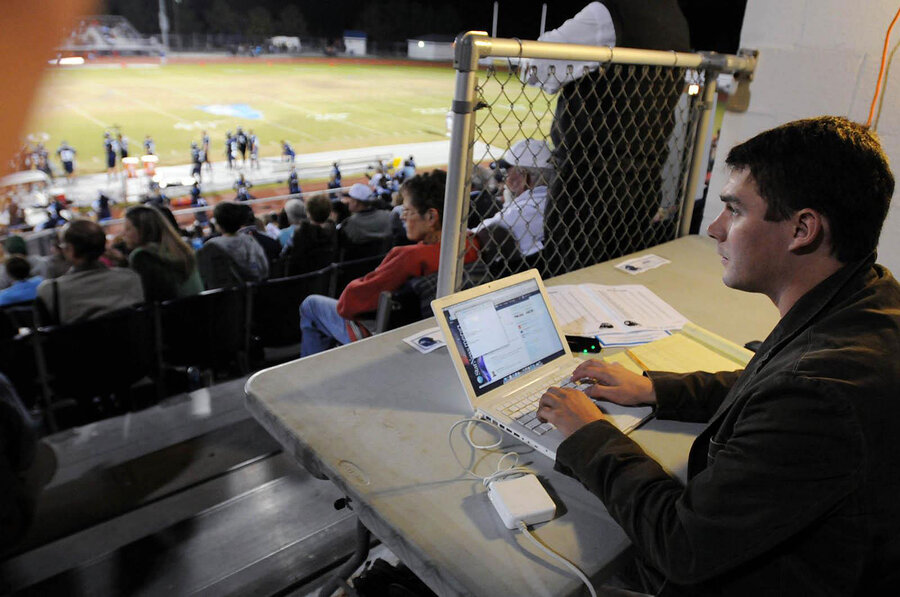When sportswriter Powell Latimer left the Wilmington (N.C.) StarNews this past summer to take a job in Florida, he boosted his pay by $6,500 a year but lost his health-care benefits.
“They throw in an extra $2,000 stipend for health care,” he says of his new employer. But “$2,000 – I'm not sure it’s going to cover all the health-care that I want to buy.”
Like many young people, he has bare-bones medical needs. “I'm 25,” he says. “I don't have any pressing health concerns.” Even when he had benefits, he visited a doctor only once in the past three years.
While the stipend wouldn’t cover all the costs, the prospect of paying for health insurance isn’t overwhelming, at this point. Technically, under the Affordable Care Act Mr. Latimer could still be covered by his parents’ plan until March, when he turns 26. In his new hometown of Tallahassee, Fla., the available plans for a single 26-year-old on the HealthCare.gov exchange range from $181 (for a "catastrophic" plan that covers less than 60 percent of medical costs) to $325 a month (for a "platinum plan" that would cover 90 percent of costs).
The catastrophic option is generally available only to people under 30 or those with limited incomes. After reaching age 30, Latimer would have to sign up for the "bronze plan," currently $210 a month. (With a $40,000-a-year salary, he might qualify for a lower price because the Obamacare law includes discounts for individuals who make less than $46,000 a year.)
Latimer hasn’t signed up yet – he has been too busy covering the college football season for Rivals.com. He did go online recently to set up an account at HealthCare.gov, but he has yet to finish the application. “Once I got into it, it worked fine,” he says of the federal website, whose early glitches are now infamous. “It didn’t kick me off or anything.”
Health care has been the subject of a political tug of war among groups representing young people. Young Invincibles, a Washington-based group allied with minority, union, and other left-leaning groups, is urging young people to sign up. Generation Opportunity, a conservative group in Arlington, Va., has been running “Creepy Uncle Sam” videos online. The message: Young Americans shouldn’t shoulder the burden of subsidizing Obamacare for seniors. The group urges young people to opt out of the program by paying the penalty and buying cheaper health insurance on the open market instead.
But the political back-and-forth in Washington has not permeated Latimer’s social circles. Colleagues without employer-provided health benefits occasionally grouse about not having benefits through their company and having to buy insurance themselves. But the discussion ends there.
“It hasn't come up in social settings much,” he says. “It’s hard to get through the spin on each side. Some people say it’s the greatest; some people think it’s the Great Satan.”
The effect of the Affordable Care Act would be more pronounced if he got married, Latimer says. “It would definitely make other jobs that offer health benefits vastly more appealing…. A full heatlh-care plan is insanely expensive. You're going to pay $800 a month for health care. How does that jibe with people my age making my salary?”
– Laurent Belsie, staff writer






